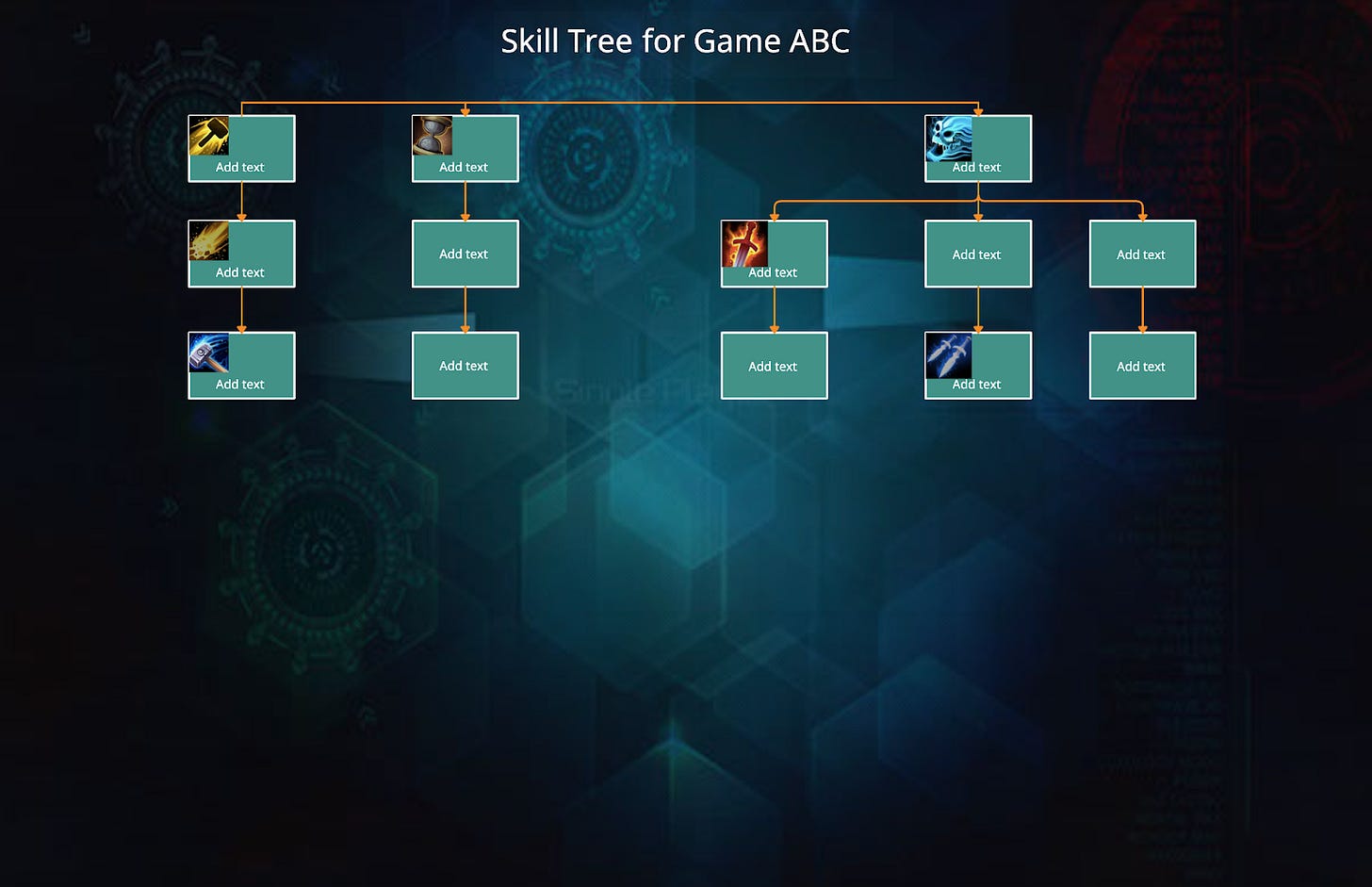The irl skilltree is lopsided
Several games have a “skill tree” mechanic. The idea behind the skill tree is that there are basic skills you can acquire, and that further progress along the “skill stack” depends on you having acquired those previous basic skills.
In these games there’s a breadth-first development: you develop the skills at a certain level of depth, then at the level deeper than that, and so on.
Something like this.
This model often pops up in real-life, even in people who’ve never played such a game. People just generally assume that if someone has mastered a deep skill then they certainly also have well-rounded development of basic skills. They assume that there is no way someone can be a master of a deep skill and yet lack the foundations, the basics.
This preconception is built in so deeply that we deny all the evidence staring us in the face that it just. isn’t. true. Not to pick on anyone in particular but look at Jordan Peterson’s example: someone who definitely believes in this linear skill tree model, even though he himself is a walking counter-example to it!
A funny meme.
Now, you could conclude that what Jordan Peterson says is right: that if he can’t even clean up his own room then he has no business giving advice to anyone, that his advice can’t possibly be useful.
And yet, and yet, so many people independently claim to have benefitted from his advice. Those people could all be independently in error about their own experience: confused into thinking they benefited from his advice when they really didn’t. Or we could assume that it is he who is wrong: you can give good advice even if you can’t clean your room.
There’s other examples of this pattern—too sad for me to mention really—of absolute geniuses that couldn’t take care of the basics and ended up homeless or dying because of it. But that doesn’t negate their skill: it negates the linear model of the skill tree.
Truth is that the irl skilltree looks more like this:
Skill tree for irl.
that is, it is lopsided: you can get very far into a particular direction while missing “foundational” or “basic” skills.
In fact, this is actually what happens most often: it’s not normal to develop extreme skill at anything, almost everyone is mediocre at almost everything. People who develop extreme skill at any one thing are usually compensating for extreme lack of skill at something else, usually, precisely “basic” or “foundational” skills.
This matters for two reasons:
One, if you want to be extremely competent at something don’t assume you need general “basic” skills as a strict precedent. More often than not that pursuit can be just a waste of time. It might make you well-rounded, but not hyper-competent.
And two, many people have gotten burned because their assumption that that extreme competency entails having all the basics down caused them to have a rude awakening when they were confronted with someone who violated that notion. Don’t make that mistake.




I'm not sure this is how skill trees in games work either (at least not the games I'm familiar with). In games like Dungeons and Dragons, there are tradeoffs between how wide you can go and how deep you can go. This leads to the concept of "min-maxing", i.e. pumping every possible skill-up you can into one area ("maximizing" it), leaving you actively handicapped in other areas ("minimizing" them). From what I understand this was more prevalent in earlier editions of D&D, but it can still apply even in 5e to some extent. Using point-buy, you can end up with a -1 modifier to *two* of your six ability scores, in order to pump two others to +3, and leave the other two with a +2 and a +1. Now tbf this is probably still more well-rounded than many hyper-competent people in real life: that might look more like +5, +0, +0, -1, -3 -3. So games still present a bit of a fantasy of having more "skill points" to distribute than most real people actually have. But the basic idea applies even in games: being well-rounded isn't always the best option: you don't want a +1 in every stat.
The skills required to be good at something are typically worthless unless you're also good at self-marketing, at minimum, which can be an existential anchor around your neck.